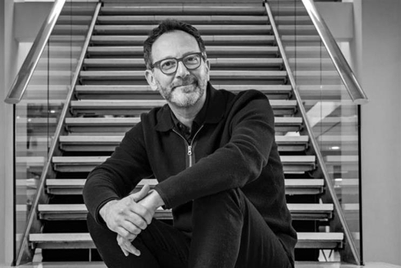
Before taking up her current position, Hussein held senior roles at a number of agencies including Bates 141, Dentsu and Y&R. She has also branched out on her own to set up her own consultancy, Brand Energy, where she worked with clients such as P&G, Cadbury, Shell and Sara Lee.
While Hussein believes the advertising industry is not given the stature it deserves in Malaysia, particularly in comparison with the UK, she has helped put M&C Saatchi Malaysia firmly on the world map: the agency ranked third in the network in terms of performance at the end of last year, and was named runner-up as Mid-sized Agency of the Year at Media’s Agency of the Year Awards.
When taking a well-earned break from work, Hussein is a talented show jumper, mountaineer and marathon runner.
How did you get into the advertising industry?
By default. I had lived in England most of my life - since the age of three - and was not a product of the Malaysian education system. I came back in 1988 intending to join the diplomatic service; I didn’t know what the hell advertising was. But I didn’t have the criteria to enter, such as Bahasa (the national language of Malaysia). I needed to work; people said ‘Why don’t you try advertising? It’s very open and creative’ - so I joined JWT. It was a culture shock and I earned peanuts.
Who was your career inspiration?
I’ve been inspired by a few people to stay on and stay focused. One is a client and best friend - we grew up together and have been working together for 15 years. One thing I can say is that I’ve stayed for a long time in each agency I’ve worked at because of the people.
What is your philosophy towards work?
I believe in certain principles. In advertising, you have to be passionate, even obsessive. I am that kind of person. You have to be obsessed with winning and overcoming things. Secondly, you have to be really focused. To motivate, you have to be motivated. You depend on other people; to have the right team and the right people around me - that’s what I live by. Being in the right kind of environment and having the right relationships is very important.
Why aren’t there more women at the top in advertising?
In Malaysia, it’s partly due to upbringing and education, but in general it has a lot to do with mental and physical stamina. Quite simply, it’s easier to do something else. Commercial banking, for example. There are a lot of women on the client side, in brand management and that sort of thing. It’s steadier and not as demanding as you’re not at the receiving end of the stick. A lot if women are mid-level clients, and for most that’s much more appealing. [In advertising] you’ve got to take a lot of abuse, especially the younger you are. And not just from clients - also internally. A lot of female creatives work part-time or as freelancers, so in the creative field [a work-life balance] is doable.
It’s also a function of the education system. If you haven’t gone through the grind, you’re not going to have that drive. In the UK, by the time you get into the working world, you’ve already gone through all that. The girls in our UK office are tough, but in Malaysia, you aren’t trained to be. My advice would be to go through a formal education, which is fundamental to getting the basics right, and then get a good foundation and training within the industry.
Is the industry doing enough to attract female talent?
It’s complex. The way the industry functions differs [across disciplines], but you will always be dealing with demanding clients and facing tough competition, so how can the industry make it easier? The only way is if clients and agencies can understand and appreciate one another more and work better together.
What advice would you give to young women looking to advance their careers in advertising?
The most important thing is to be focused, be tough, and to ride with it and overcome all the challenges. And the last thing you want to see [as a prospective employer] is job-hopping. People burn out in one job and the next thing you know, in two years you’ve had five jobs and then you realise you’re no longer marketable. You have to decide ‘This is really what I want’ and then stick with it.
What was your biggest challenge in 2009?
With the whole global recession coming down at you it was critical to retain every single client and retain our people. We couldn’t afford any upheavals.
And your biggest achievement?
The fact that we were ranked third in the whole [M&C Saatchi] network, which is made up of 18 offices worldwide. In 2009 London did really well; so did Australia; and we were third! I felt really good about that.
What are your expectations for 2010?
I think it’s going to continue be a period of uncertainty so we need to be quite conservative in our expectations in terms of financials. The key thing will again be for us to ensure that we retain our anchor clients and key members of the agency. Personally I am feeling quite upbeat and hopeful and trying hard to take each step as it comes, and not to be too impulsive in decision-making.




.jpg&h=268&w=401&q=100&v=20250320&c=1)

.jpg&h=268&w=401&q=100&v=20250320&c=1)
.png&h=268&w=401&q=100&v=20250320&c=1)
.jpg&h=268&w=401&q=100&v=20250320&c=1)
